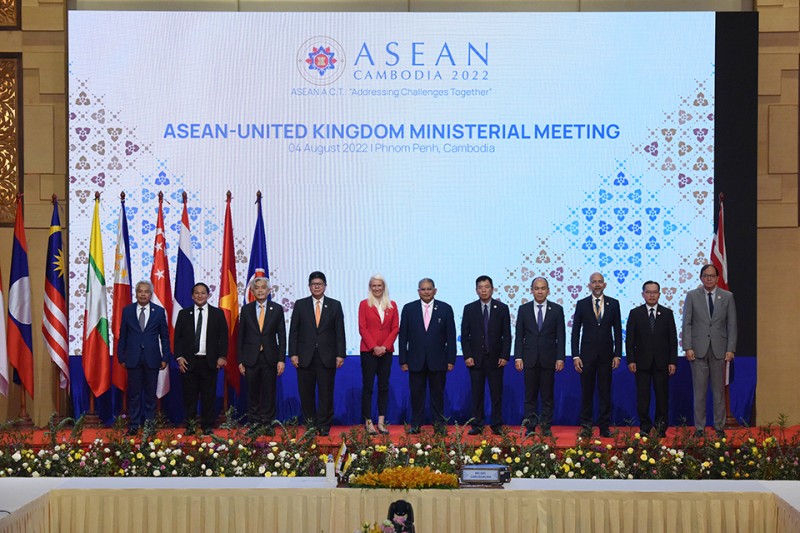
UK: The UK intends to strengthen its ties with South East Asia in terms of security and development. As part of this, it will set up a regional investment office in Singapore later this year and provide guidance on matters related to maritime law and security, as well as training with the Royal Navy.
The United Kingdom will seek to invest up to £500 million (US$608 million) in the Indo-Pacific region as part of the initiative, according to Amanda Milling, the country's minister for Asia, who made the announcement while visiting Cambodia.
According to Milling, the new action plan will strengthen cooperation in the areas of trade and investment, security and defence, as well as climate change, girls' education, digital technology and science and technology.
In a statement, Milling said that "the UK continues to deepen our economic ties and strengthen our security partnership with these rapidly growing economies in Southeast Asia." “Practical steps, such as the opening of a new BII [British International Investment] office in Singapore to encourage investment and increase engagement in the Indo-Pacific, demonstrate our continued commitment to the region and increased maritime law and security, " reads the statement.
The meeting was in Cambodia, as part of the Association of Southeast Asian Nations (ASEAN) foreign ministers meeting. The minister said Infraco Asia, which the United Kingdom supports by contributing to the private Infrastructure Development Group, is lending $2.3 million to Cambodia to help build its water supply network.
Additionally, the UK and the Asian Development Bank recently signed a Memorandum of Understanding to support ASEAN states' investment in green infrastructure through a £107 million (US$130 million) trust fund.
The move comes soon after Britain announced plans to stop providing aid to China and heightened tensions between Beijing and London over the South China Sea.
As part of the new international development strategy for the country, Foreign Secretary Liz Truss said in May that Britain would use its aid and investments to "challenge reliance on malicious actors" and provide options for developing countries. .
We must use development as an important component of our foreign policy in a world that is becoming more geopolitical. According to Truss at the time, malicious actors use economics and development as a tool for control, using credit, investment and protection to exert economic pressure and political power. We will not adopt their wicked strategies, but we will be determined to offer an alternative.
According to a recent poll of members of the ruling Conservative Party, who will vote for a new leader later this summer, Truss is one of two candidates to succeed Boris Johnson as Britain's prime minister and the Presumptive Front. is runner.
Both Truss and former Treasury chief Rishi Sunak have expressed concern about the impact of China's expansion internationally and the need for their campaigns to take a "harsh" stance towards China.
Britain is also increasing its presence in the region in an effort to stop China's expansion into the Indo-Pacific. Last year, it joined Ocus, a tripartite security agreement with Australia and the United States.
The aircraft carrier HMS Queen Elizabeth and her strike group navigated through the waters of the disputed South China Sea in September 2021 as part of military drills and freedom of navigation exercises. Britain announced last year that it would permanently deploy two warships to Asia, as part of a greater emphasis on the region.
The increased emphasis on Southeast Asia and the Indo-Pacific coincides with tensions related to Taiwan following the visit of US House of Representatives Speaker Nancy Pelosi this week.
Beijing has denounced the visit as a betrayal of one-China policy and announced that this week's military drills will include ammunition close to the island.
China was criticized on Wednesday by the United Kingdom and other G7 countries for "raising tensions and destabilizing the region" with its response to Pelosi's visit.
China launches Dongfeng missiles Near Taiwan
After Pelosi visit, China mulls military exercises around Taiwan
Mainland China begins a war game encircling Taiwan after Pelosi ends her visit to the island